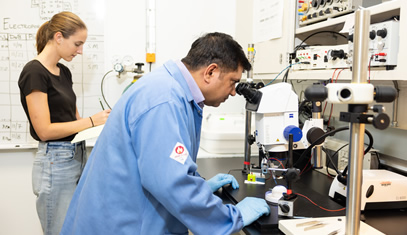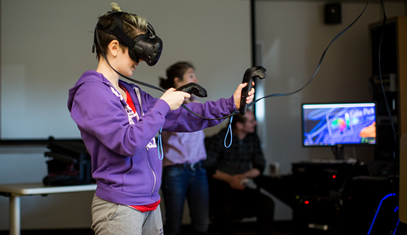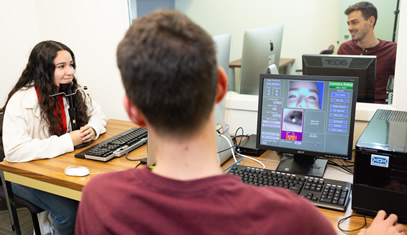
Faculty Research
Find resources for the following from the Office of Research:
The School of Communication supports inquiry, projects, and research about the ways that humans communicate. Scientific, social scientific, and creative approaches guide faculty and students to seek deeper understandings of communication and the human condition.
The School of Communication’s Office of Research provides assistance and administrative support to faculty and students for sponsored projects. From the first steps of identifying funding sources to the last steps of submitting final reports, the Office of Research offers guidance throughout the entire process.

Find resources for the following from the Office of Research:

Labs and centers in the School of Communication study ways to improve health and well-being, the relationship of media and society, and the cultivation of creativity and technology.

Learn about funding from the School of Communication and The Graduate School.

Explore research opportunities from the School of Communication and the Office of Undergraduate Research.